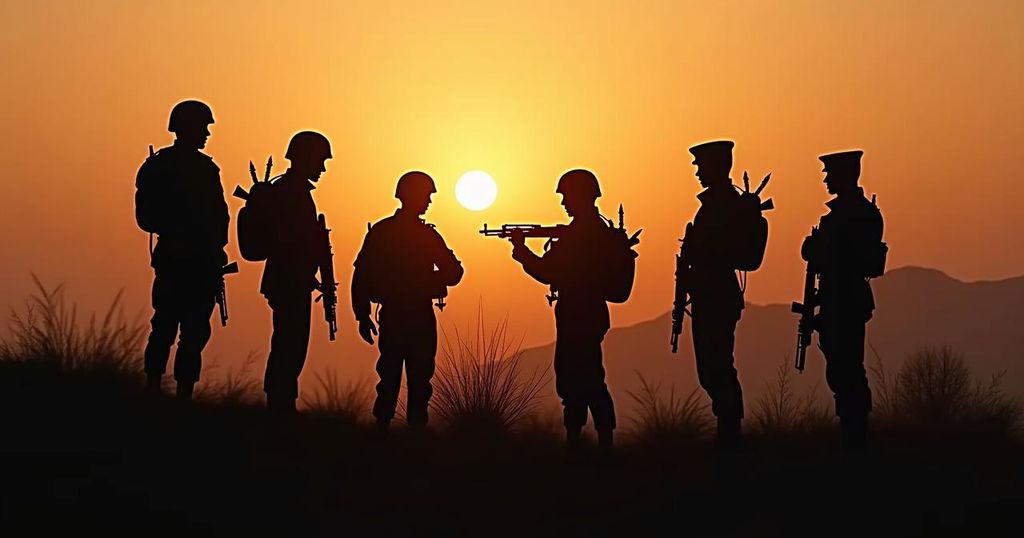As Tunisia approaches its presidential election, the increasing political role of the army under President Kais Saied’s leadership raises significant concerns among observers. Historically marginalized, the military gained influence after the 2011 revolution. Saied has notably integrated military officials into government roles, advancing their political clout. This development indicates a profound change in the traditional separation between military and politics, prompting discussions about the implications for democracy in Tunisia.
The evolving role of the Tunisian army in political affairs has become a prominent concern as the nation approaches its presidential election. Following its marginalization during the regimes of Presidents Habib Bourguiba and Zine el-Abidine Ben Ali, the military emerged as a symbol of democracy during the 2011 revolution. However, its political influence has surged since President Kais Saied took office in 2019. In pursuit of military support, Saied’s administration has integrated high-ranking military officials into key governmental positions, marking a significant shift in Tunisian politics. This development raises alarms about the military’s potential political role, particularly in light of the upcoming presidential election deemed largely unfair by observers. Historically, the Tunisian army has steered clear of direct political involvement, a stance reinforced by Bourguiba’s efforts to keep military personnel away from governance after a failed coup attempt in 1962. In contrast, following the revolution, the military has gradually become more involved, participating in elections and maintaining public order. Saied’s presidency marked a new phase for the military, characterized by increased visibility and power, especially following his controversial moves to consolidate authority in July 2021 with military backing. This unprecedented influence is exemplified by the appointment of military officers to ministerial roles, an occurrence that has never happened before in Tunisia. However, this growing power has led to internal tensions between Saied and the military, particularly in responses to the upcoming election and policy disagreements regarding critical issues such as water shortages. As the electoral process unfolds, questions linger regarding whether the army will uphold its role as a protector of democracy or align itself with authoritarian practices. The outcome remains uncertain, with many watching closely to see how the army will navigate its responsibilities amidst a politically charged atmosphere.
The backdrop of this analysis is grounded in Tunisia’s complex political history where the army has transitioned from being a marginalized institution to gaining prominence post-revolution. Tunisia’s initial military policy was characterized by suppression of military influence in governance, a strategy employed by the founding president Bourguiba, who believed in adhering to civilian political models. However, the revelations of the army’s increasing stature in the years following the revolution symbolize a departure from historical patterns, spotlighting the army as both a protector of democracy and an emerging power player in political dynamics under Saied’s presidency.
In conclusion, the role of the Tunisian army in the country’s politics is undergoing a pivotal transformation as it grows more involved under President Kais Saied’s administration. This shift raises critical questions about the military’s influence over democratic processes, especially leading into the upcoming presidential election. As observers remain vigilant, the military’s actions will determine whether it will act as a guardian of democracy or contribute to authoritarian governance.
Original Source: www.middleeasteye.net






